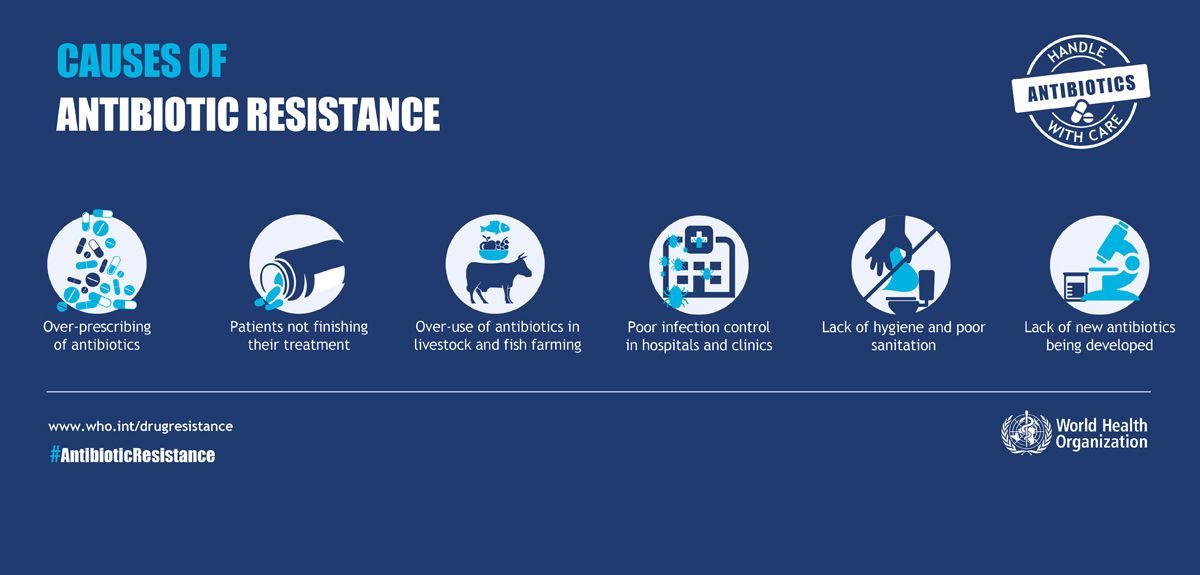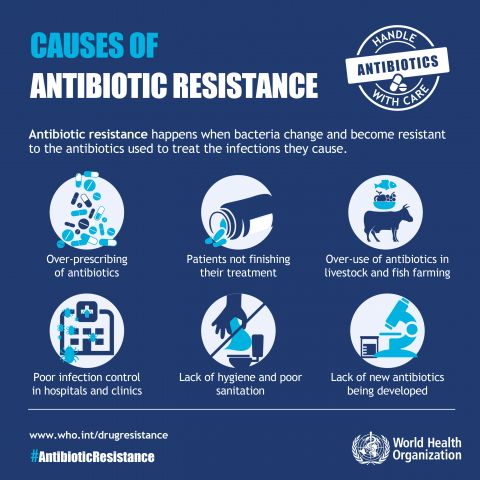
Image credit: World Health Organisation
£2 million funding to tackle superbugs
Two research teams at Oxford have shared £2 million of funding to tackle the increasing issue of antibiotic resistance.
In one study, primary care researchers at Oxford and Cardiff will test whether a probiotic supplement can reduce the number of infections in care home residents, in a bid to cut antibiotic use in this high-risk group. In another, a team will review how best to improve the prescribing of antibiotics. Both studies are being run by researchers at the Nuffield Department of Primary Care Health Sciences and have received funding from the National Institute for Health Research (NIHR), the research arm of the NHS.
Probiotic research
Probiotics are 'good bacteria' that can provide health benefits when taken as a supplement.
Infections are the most common reason for care home residents to be hospitalised, and previous research shows care home residents are the biggest user group for antibiotics, which puts them at significant risk of developing antibiotic drug resistance.
The researchers will provide care home residents with daily supplements of widely available probiotics or a placebo over 12 months. They will assess the total number of days on antibiotics for common infectious diseases.
Care home residents are prescribed far more antibiotics than the general population
Professor Christopher Butler
Christopher Butler, a GP for the Cwm Taf University Health Board and Professor of Primary Care at the University of Oxford's Nuffield Department of Primary Care Health Sciences, who will lead the research, said:
'Care home residents are prescribed far more antibiotics than the general population since they are more vulnerable to infections due to their weakened immunity, close proximity living and multi-morbidity. They are often hospitalised when the drugs stop working. Our study should answer the question whether or not daily probiotics prevent infections. If successful, this cheap, safe probiotic could improve quality of life and contain antibiotic resistance in this growing vulnerable population.'
Read more about probiotic research.


Prescribing research
Doctors in training are... the largest group of prescribers in UK hospitals.
Dr Geoff Wong
Prescribing is a complex, challenging task and potentially a high-risk area of clinical practice. For example, prescribing errors occur in 7% of hospital prescriptions and 50% of hospital admissions. Improved antibiotic prescribing could be part of the solution to the development of anti-microbial resistance. This study will investigate the many contextual factors that could help explain why some approaches to improve prescribing behaviour are more effective than others.
Lead researcher Dr Geoff Wong, from University of Oxford commented; 'Doctors in training are an important group to focus on, being numerically the largest group of prescribers in UK hospitals. Our review will explain and describe the steps needed to bring about appropriate prescribing behaviour change in doctors in training.'
 Expert Comment: Is an under-16 social media ban the right course?
Expert Comment: Is an under-16 social media ban the right course?
 ADHD medication use rises sharply across Europe, driven by growth among adults
ADHD medication use rises sharply across Europe, driven by growth among adults